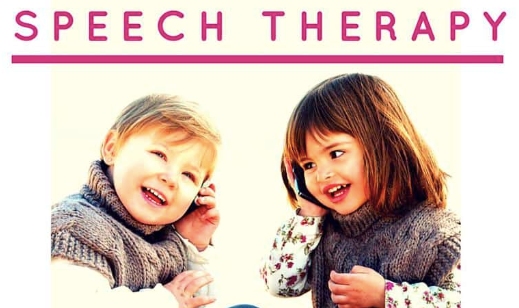Is your toddler babbling a storm but not quite forming words yet? There’s a lot you can do to help your toddler develop their speech skills in fun and playful ways. This blog post explores engaging speech therapy activities for toddlers that you can do at home!
Math & ELA | PreK To Grade 5
Kids see fun.
You see real learning outcomes.
Watch your kids fall in love with math & reading through our scientifically designed curriculum.
Parents, try for free Teachers, use for free
1. SplashLearn
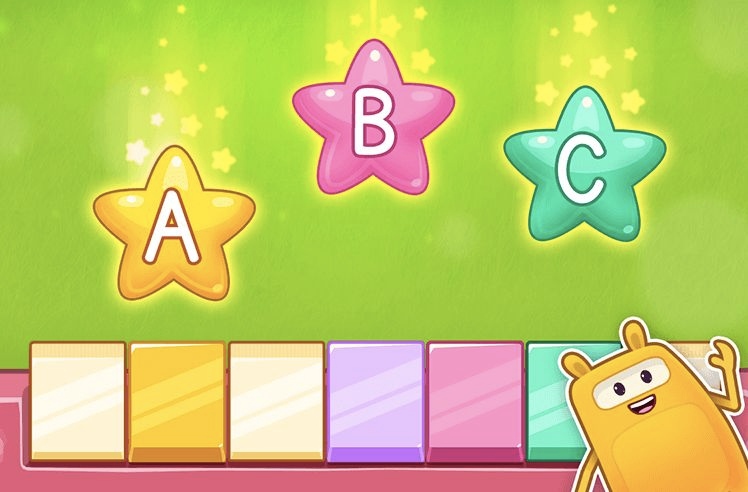
If you are looking for some screen time that doubles as speech therapy, SplashLearn is a one of the best speech therapy activities for toddlers online. Tailored for toddlers, SplashLearn uses interactive games, songs, and stories to introduce new vocabulary, practice letter sounds, and build basic grammar skills. Plus, the engaging characters and colorful graphics keep little ones entertained while they learn. It’s a win-win for parents and toddlers!
2. Singing Songs

Objective: Improve language through rhythm and repetition.
Music is one of the most fun speech therapy ideas. Choose simple songs that feature repetitive phrases and easy melodies. Sing along with your toddler, encouraging them to join in. Repetition of these catchy tunes helps reinforce language patterns and boosts memory.
Related Reading: Best ABC Song for Kids
3. Animal Sounds
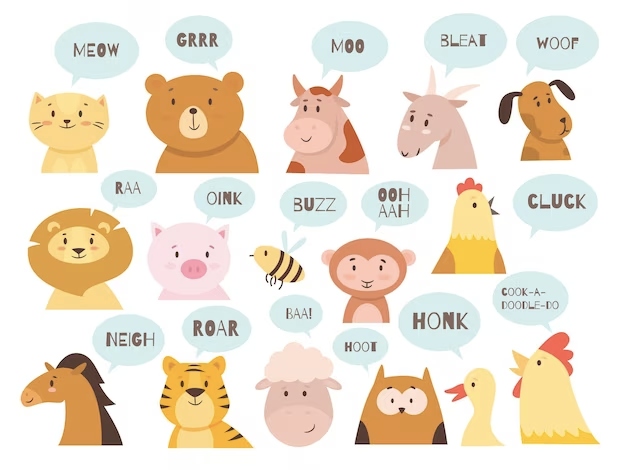
Objective: Develop vocal skills through playful sound imitation.
Animal sounds are not just fun; they’re educational. This game is a hit in toddler speech therapy games, where mimicking animals’ noises—like a cow’s “moo” or a cat’s “meow”—helps toddlers practice different vocal pitches and sounds. Engage with your child by taking turns to guess the animal.
4. Name That Item
Objective: Expand vocabulary.
‘Name That Item’ is a straightforward yet powerful speech therapy activity for three-year-olds. Gather various everyday objects and place them in front of your toddler one at a time. Ask them to name each object. This not only builds their vocabulary but also enhances object recognition skills. It’s a simple and effective way to help them connect words with their corresponding objects, fostering cognitive and language development.
5. Bubble Blowing

Objective: Stimulate motor skills and sound production.
They learn to control their breath as they blow bubbles, which is crucial for speech clarity. Encourage them to pop the bubbles while saying “pop” or asking for “more.” This activity supports motor skills through blowing and popping and introduces new sounds and words, making it a favorite among speech games.
6. Stacking Blocks
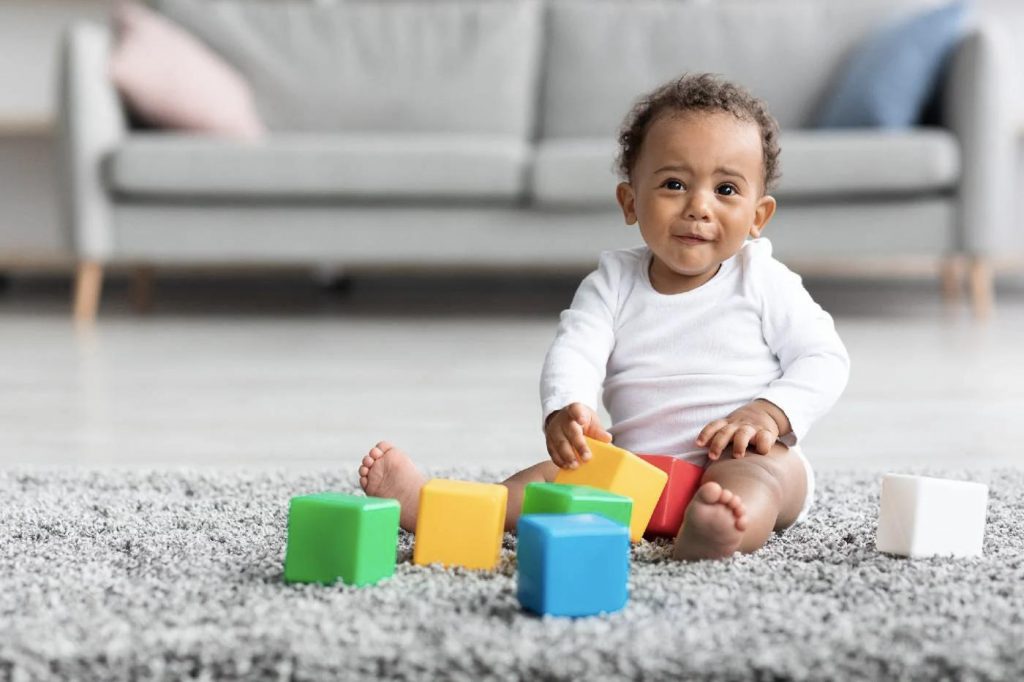
Objective: Foster language through structured play.
Stacking blocks is a dynamic part of speech and language therapy. As you and your toddler build towers or create designs, narrate each action. Say things like, “Now I’m adding a blue block on top!” Encourage your child to make specific requests, such as asking for a certain color or size. This interaction helps them learn to use language to express their needs and desires while they play.
7. Puzzle Solving
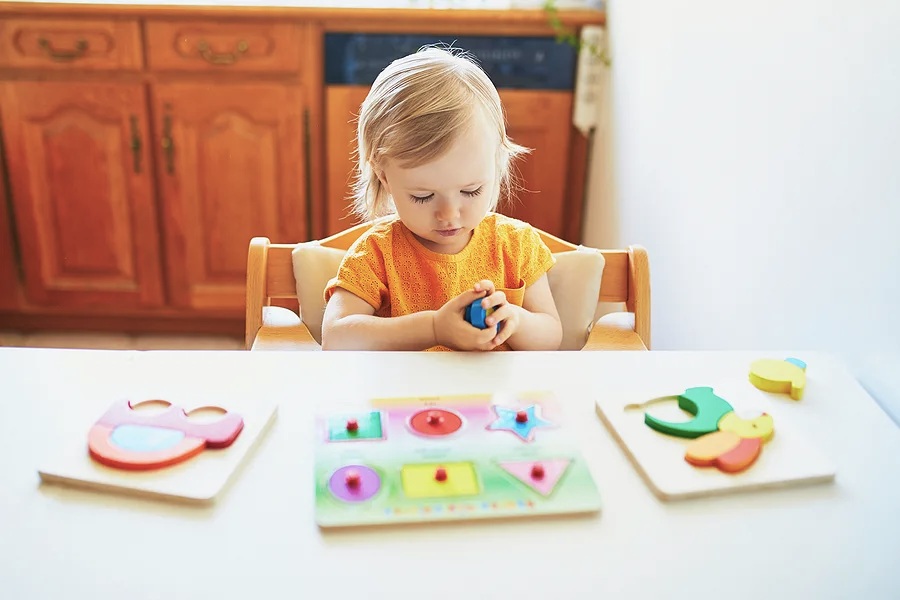
Objective: Enhance spatial reasoning and descriptive language.
Puzzles are a fantastic tool for developing both language and cognitive skills. Sit with your toddler and tackle a simple puzzle together. Discuss each piece, describing its colors and shapes, and discuss where it might fit on the board. This practice improves their spatial reasoning and enriches their descriptive vocabulary, making it one of the best speech therapy games.
Related Reading: Best Math Puzzles for Kids
8. Feather Blow
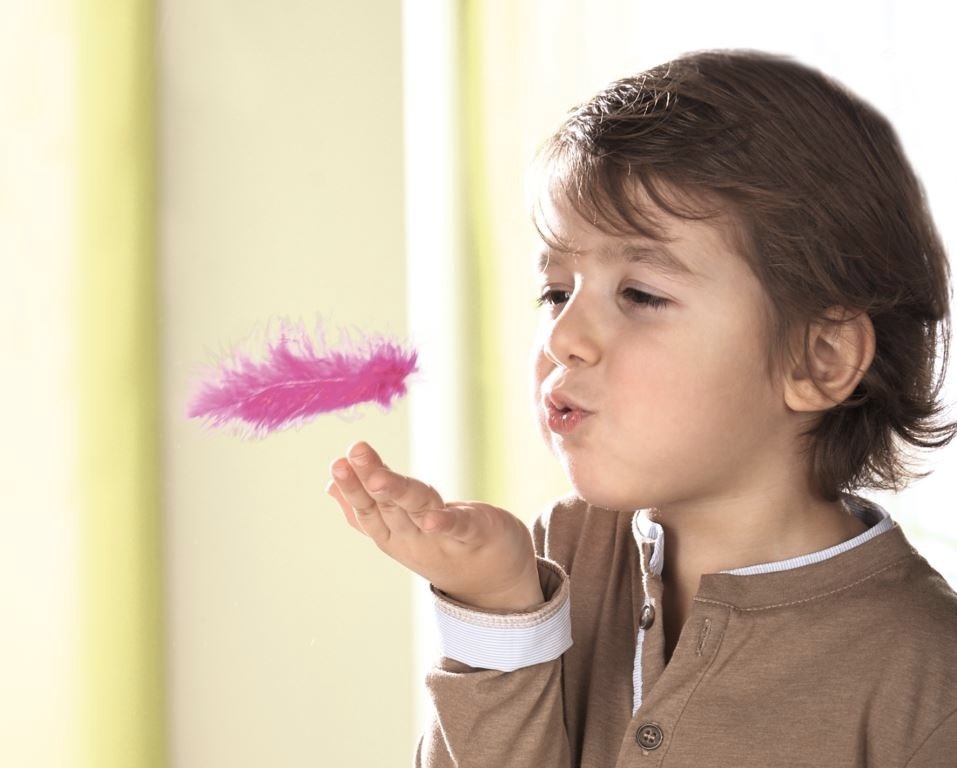
Objective: Improve breath control, which is vital for speech production.
Feather blowing is an excellent toddler speech therapy exercise focusing on breath control, an essential aspect of speech clarity. Have your toddler try to blow a feather across a table or the floor, using only their breath. Guide them to take deep breaths and control the exhale. This activity is fun and teaches them how to regulate their breath, which is crucial for speaking clearly and confidently.
9. Hide and Seek with Objects
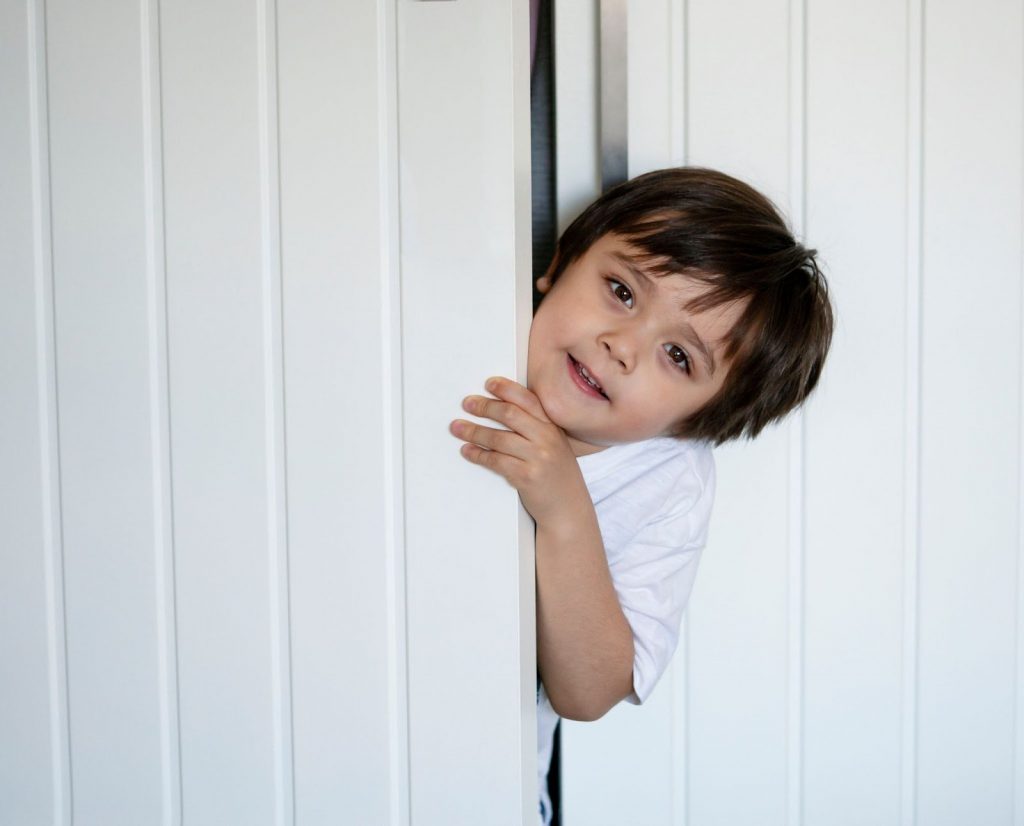
Objective: Build prepositional and spatial language.
Turn learning into an adventure with a game of hide-and-seek using your toddler’s favorite toys. Hide objects around the room and describe their locations using prepositions like “under,” “behind,” or “next to.” This 2-year-old speech therapy activity encourages toddlers to understand and use spatial terms, enhancing their grasp of language and environment.
10. Matching Games
Objective: Develop cognitive and language skills.
Matching games are excellent activities for improving speech and overall cognitive abilities. Use cards with images of common items or various objects. As you play, discuss the attributes of each item, such as their colors, shapes, and sizes. Encouraging your toddler to articulate these features enhances their vocabulary and helps them connect words and meanings.
Related Reading: How to Improve Kids' Vocabulary
11. Follow the Leader
Objective: Encourage imitation of actions and sounds.
“Follow the Leader” is a playful and interactive way to develop communication skills. Perform simple actions or make sounds and have your toddler mimic you. This activity makes learning fun and improves their ability to listen and replicate sounds, which is crucial in early speech development.
12. Interactive Storytelling
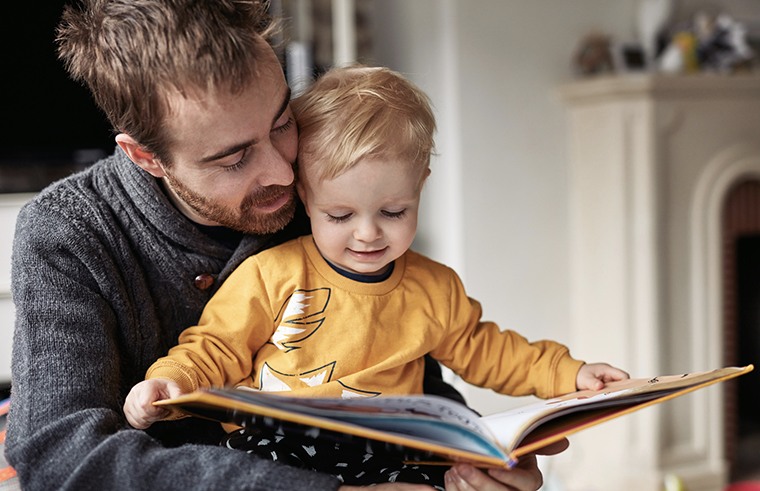
Objective: Engage multiple senses for comprehensive language learning.
Storytelling is an engaging way to develop language skills. Make it interactive by using different voices for characters, adding facial expressions, and incorporating hand gestures. Ask your toddler to guess what happens next or mimic the characters’ actions or sounds. This immersive approach stimulates their imagination and encourages them to use language in varied and creative ways.
13. Simple Commands
Objective: Practice comprehension and execution of verbal instructions.
Integrating simple commands into daily routines is a straightforward way to enhance your toddler’s understanding and responsiveness. Commands like “Please bring me the ball” or “Can you touch your nose?” help toddlers associate actions with words, fostering comprehension and verbal skills.
14. Rhythm and Rhyme
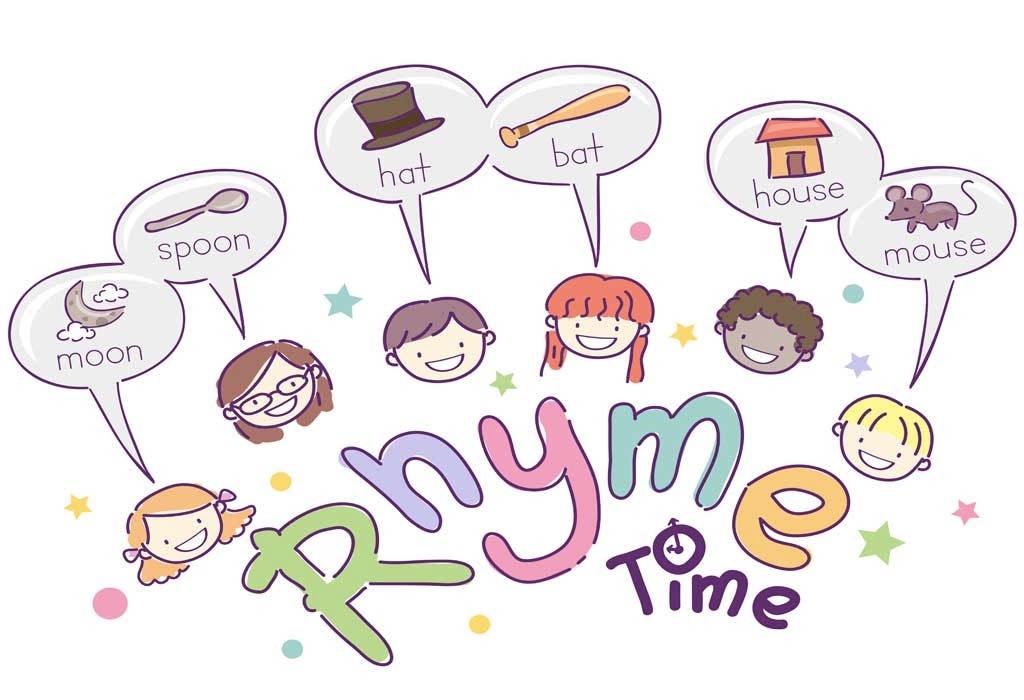
Objective: Improve phonemic awareness and verbal memory.
Engage your toddler with simple rhyming games or rhythm clapping. These activities are not just entertaining—they are also powerful tools in speech therapy. They help toddlers recognize sound patterns, essential for developing reading and speech abilities. The repetitive nature of rhymes enhances memory, making this a fun and effective learning tool.
Related Reading: Rhyming Words for Kindergarten Kids
15. Mystery Bag
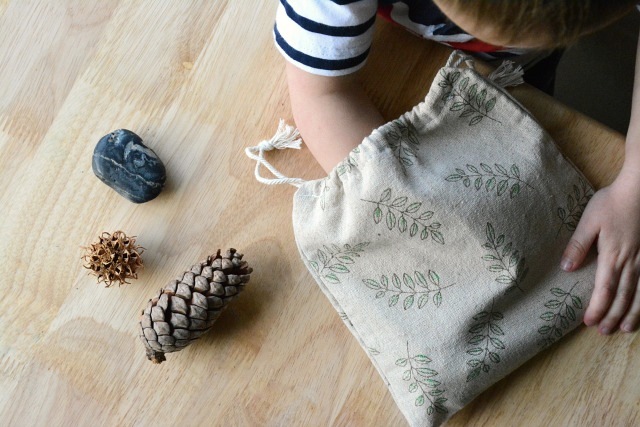
Objective: Enhance sensory vocabulary and descriptive skills.
The “Mystery Bag” is a simple yet effective tool in our toolkit of speech therapy activities for toddlers at home. Fill a soft, opaque bag with various small, safe household items. Have your toddler reach in and pick one item without looking. Encourage them to feel, squeeze, and manipulate the item and describe it using words like “smooth,” “bumpy,” “cool,” or “flexible.”
5 Benefits of Speech Therapy Activities for Toddlers
Speech therapy activities for toddlers offer numerous benefits that are crucial for early childhood development:
- These activities help toddlers learn new words, improve their pronunciation, and form complete sentences, facilitating better communication at a young age.
- Engaging in speech therapy activities stimulates thinking, problem-solving, and memory. Toddlers learn to follow instructions, identify objects, and match their attributes, which boosts their overall cognitive abilities.
- As toddlers learn to express themselves more clearly, they gain confidence in social settings. Participating in group activities and games enhances their social interaction and turn-taking skills.
- Through interactive and repetitive exercises, toddlers improve their ability to listen carefully and understand spoken instructions and stories, vital skills for academic success.
- Speech therapy activities are designed to be fun and engaging, making learning a positive and enjoyable experience. This encourages toddlers to love learning and participating in educational activities.
Conclusion
Incorporating speech therapy activities into your toddler’s daily routine can significantly enhance their communication and cognitive skills in a fun and engaging way. By fostering these skills early on, you’ll provide your child with a strong foundation for successful learning and interaction in their future years.
Related Reading: Best Grade-Wise Phonemic Awareness Activities for Kids
Frequently Asked Questions (FAQs)
What are nonverbal communication games for kids?
Nonverbal communication games for kids include activities like charades, where children guess the word or phrase acted out without speaking, and emotion cards, where kids identify and mimic emotions displayed on cards. These games enhance understanding of body language and facial expressions.
How can I help my toddler with speech sounds?
To help your toddler with speech sounds, engage in activities like mimicking animal noises, reading books aloud emphasizing certain sounds, and singing songs that focus on repetitive phonetics. These playful interactions promote accurate articulation and sound recognition.
What are gesture games for speech?
Gesture games for speech involve activities where children use hand movements to communicate ideas or words. Games like “Simon Says” or creating a story using only gestures help children associate actions with words and improve their ability to express themselves without verbal cues.

















